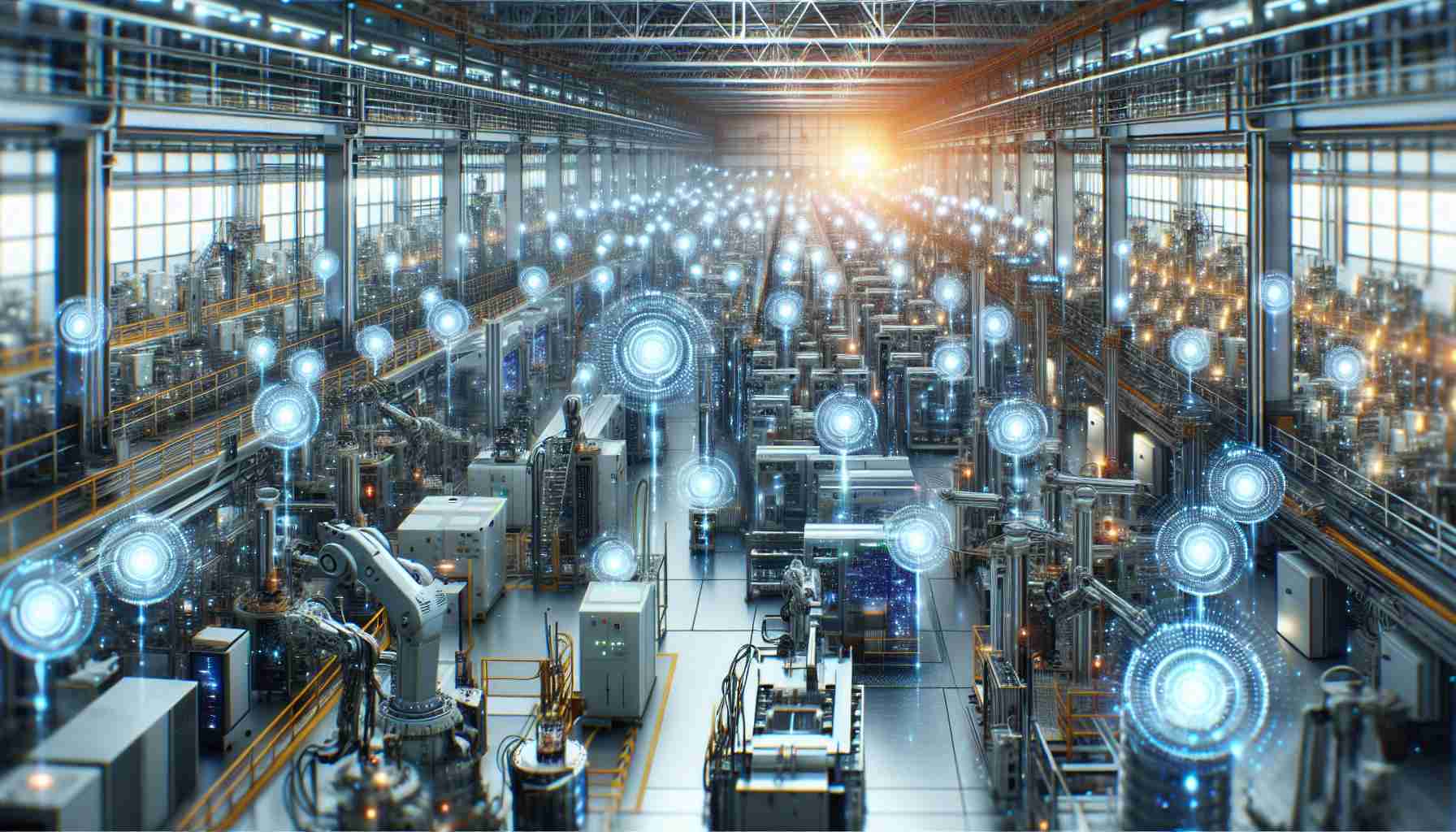The global artificial intelligence sensor market is witnessing exponential growth, driven by the rising demand for smart consumer devices and the widespread adoption of AI technologies. According to recent research, the market reached a valuation of $3.2 billion in 2022 and is projected to exceed $103 billion by 2032, with an impressive compound annual growth rate (CAGR) of 41.8%.
Artificial intelligence sensors play a crucial role in collecting and analyzing data from the environment utilizing cutting-edge technologies like machine learning and computer vision. By enabling devices to interact with their surroundings, recognize patterns, and make intelligent decisions based on real-time data, these sensors are transforming various industries, including autonomous vehicles, robotics, smart homes, healthcare, and industrial automation. They significantly enhance the perception, cognition, and decision-making capabilities of AI systems.
The COVID-19 pandemic has further accelerated the adoption of artificial intelligence sensors across multiple sectors. These sensors possess unique characteristics that have proven invaluable in combating the pandemic, leading to their increased utilization in healthcare, industrial automation, and smart cities. From monitoring the health of patients to ensuring efficient control of manufacturing processes, AI sensors have become indispensable tools in addressing the challenges posed by the global health crisis.
To drive market growth, major players in the artificial intelligence sensor industry are strategically employing product launches, collaborations, partnerships, and agreements. Industry leaders such as Teledyne Technologies Incorporated, Sensata Technologies, Inc., Sensirion AG, and MEMSIC Semiconductor Co., Ltd. are actively shaping the market landscape.
Despite significant opportunities, the market does face challenges, such as high installation and maintenance costs. However, the burgeoning development of smart cities and infrastructure, coupled with the increasing preference for AI-sensor-enabled wearables, is expected to propel the market forward.
In summary, the artificial intelligence sensor market is poised for exceptional expansion in the forthcoming years due to the escalating demand for AI technologies and smart consumer devices. These sensors are revolutionizing industries by empowering advanced capabilities and enhancing the overall efficiency of AI systems. As more businesses and organizations recognize the immense potential of AI, the demand for AI sensors will continue to rise, reshaping the future of technology across multiple sectors.
FAQ Section:
1. What is the current valuation of the global artificial intelligence sensor market?
The market reached a valuation of $3.2 billion in 2022.
2. What is the projected valuation of the global artificial intelligence sensor market by 2032?
The market is projected to exceed $103 billion by 2032.
3. What is the compound annual growth rate (CAGR) of the artificial intelligence sensor market?
The market has an impressive CAGR of 41.8%.
4. In which industries are artificial intelligence sensors transforming?
Artificial intelligence sensors are transforming industries such as autonomous vehicles, robotics, smart homes, healthcare, and industrial automation.
5. What role do artificial intelligence sensors play in AI systems?
Artificial intelligence sensors enhance the perception, cognition, and decision-making capabilities of AI systems by enabling devices to interact with their surroundings, recognize patterns, and make intelligent decisions based on real-time data.
6. How has the COVID-19 pandemic impacted the adoption of artificial intelligence sensors?
The COVID-19 pandemic has accelerated the adoption of artificial intelligence sensors in healthcare, industrial automation, and smart cities, as they possess unique characteristics that are valuable in combating the pandemic.
7. Who are some major players in the artificial intelligence sensor industry?
Major players in the industry include Teledyne Technologies Incorporated, Sensata Technologies, Inc., Sensirion AG, and MEMSIC Semiconductor Co., Ltd.
8. What challenges does the artificial intelligence sensor market face?
One challenge is the high installation and maintenance costs. However, the development of smart cities and infrastructure, along with the increasing preference for AI-sensor-enabled wearables, is expected to drive market growth.
Definitions:
– Artificial intelligence sensors: Devices that collect and analyze data from the environment using technologies like machine learning and computer vision to enable devices to interact with their surroundings and make intelligent decisions.
– Compound annual growth rate (CAGR): The rate at which an investment’s value grows over a specific period, expressed as a yearly rate.
– Perception: The ability of an AI system to sense and understand information from its surroundings.
– Cognition: The ability of an AI system to acquire knowledge and process information to make decisions.
– Industrial automation: The use of control systems, machines, and technologies to automate industrial processes.
– Smart cities: Cities that use digital technologies and data to improve the quality of life for residents and enhance efficiency in urban services.
Related Links:
– Teledyne Technologies Incorporated
– Sensata Technologies, Inc.
– Sensirion AG
– MEMSIC Semiconductor Co., Ltd.
The source of the article is from the blog elektrischnederland.nl

